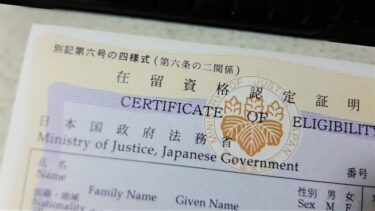Japanese work culture is known for its emphasis on teamwork, respect for hierarchy, long working hours, and a deep commitment to the company. Understanding these cultural nuances is essential for foreign professionals looking to succeed in Japan. This guide will help you navigate the key aspects of Japanese work culture, from communication styles to work-life balance.
Understanding Japanese Work Culture
1. Key Features of Japanese Work Culture
1.1 Respect for Hierarchy
Japan has a deeply ingrained respect for hierarchy, which plays a significant role in the workplace. In Japanese companies, the chain of command is strictly followed, and employees are expected to defer to senior colleagues or managers. Understanding your position within this hierarchy and addressing superiors respectfully are important.
- Senpai-Kohai System: This senior-junior relationship is central in Japanese workplaces. Juniors (kohai) are expected to show respect to seniors (senpai), who, in turn, guide and mentor them.
- Keigo (敬語): Polite language (keigo) is used when speaking to superiors or clients. Learning basic keigo is highly beneficial, especially in formal settings.
1.2 Teamwork and Collaboration
In Japan, teamwork and consensus-building are highly valued. Decision-making is often done collectively through a process called nemawashi, where ideas are discussed informally among all stakeholders before an official decision is made. This process ensures that everyone is on the same page.
- Group Mentality: Japanese employees often prioritize the group’s success over individual achievement. Contributing to team efforts, supporting colleagues, and being a cooperative team member are key expectations.
- Honne and Tatemae: Honne refers to one’s true feelings, while tatemae refers to the public facade one maintains in social settings. Understanding this concept can help foreign workers navigate professional interactions, especially when it comes to giving and receiving feedback.
1.3 Work-Life Balance
Japan has a reputation for long working hours, with overtime being common in many industries. However, the government and many companies are increasingly promoting better work-life balance to combat the issue of karoshi (death from overwork).
- Overtime (Zangyo): While it is not uncommon for employees to stay late at the office, some companies now limit overtime to encourage better work-life balance. However, foreign workers should be prepared for longer hours in more traditional workplaces.
- Vacation and Holidays: Employees in Japan are entitled to paid vacation days and national holidays. However, it is common for Japanese employees to be reluctant to use their full vacation allowance. As a foreigner, it may be more acceptable for you to take time off, but be mindful of the company culture regarding vacation usage.
2. Japanese Workplace Etiquette
Understanding and adapting to Japanese workplace etiquette is crucial for foreign workers. These unwritten rules can vary by company, but there are general behaviors and customs that are widely expected in Japanese offices.
2.1 Punctuality
Being on time is a key aspect of Japanese professionalism. Whether it’s arriving at the office or attending meetings, punctuality is non-negotiable. Arriving a few minutes early is considered ideal.
2.2 Dress Code
The dress code in Japan tends to be formal, especially in corporate settings. Business attire (suits for men and conservative business outfits for women) is standard, although some industries, such as tech or creative fields, may have more relaxed dress codes.
- Cool Biz: During the hot summer months, the Japanese government promotes Cool Biz, allowing lighter, more casual attire like short-sleeve shirts without ties to conserve energy.
2.3 Greetings and Business Cards (Meishi)
Exchanging business cards is a highly ritualized process in Japan. When handing out or receiving a business card, it should be done with both hands and with respect. Take a moment to look at the card before putting it away, and never write on a business card in front of the person who gave it to you.
- Bowing: Bowing is the standard form of greeting and shows respect. Foreign workers should aim to follow the local custom, although handshakes are sometimes accepted, especially in international settings.
3. Work Relationships and Communication Styles
3.1 Indirect Communication
Japanese communication tends to be indirect and subtle. Unlike in Western cultures, where directness is often valued, Japanese professionals may avoid saying “no” outright to maintain harmony (wa) in the group. Learning to read between the lines and understanding non-verbal cues are important skills in the Japanese workplace.
- Reading the Air (Kuuki Yomu): This phrase means “reading the atmosphere,” and refers to the skill of understanding the unspoken feelings or expectations of others. It’s crucial in Japanese work culture, where indirect communication is common.
3.2 Dealing with Conflict
Japanese work environments tend to avoid open conflict. If a problem arises, it is usually addressed privately and discreetly. Foreign workers may find that feedback, even if negative, is delivered in a roundabout way. Being diplomatic and maintaining harmony within the team are key to resolving issues.
4. Socializing Outside of Work
In Japan, building relationships outside the office is as important as working within it. Social events, such as after-work drinks (nomikai) or company outings, are part of the bonding experience. Participating in these activities is not mandatory, but it is often seen as a way to strengthen workplace relationships.
4.1 Nomikai (飲み会)
Nomikai refers to after-work drinking sessions with colleagues. These informal gatherings allow team members to bond and discuss work-related matters more openly. While you’re not required to drink alcohol, attending these events can help you build rapport with coworkers.
4.2 Company Trips (Shain Ryoko)
Some companies in Japan organize employee trips (shain ryoko), which are often seen as an opportunity to strengthen team bonds. These trips may last a day or a weekend, and participation can improve your relationship with coworkers and superiors.
5. Adapting to Work-Life in Japan
Foreign workers often face challenges in adapting to Japanese work culture, especially when it comes to balancing their own work style with local expectations. Here are some tips to help you navigate and thrive in a Japanese workplace:
5.1 Be Open-Minded
Understanding that Japanese work culture is different from your own and being open to learning is essential. Show respect for local customs and try to adapt to the ways things are done in Japan.
5.2 Language Skills
While some international companies may operate in English, learning Japanese is a huge advantage. Even basic Japanese can help you connect with your colleagues and understand workplace dynamics more easily.
5.3 Embrace Humility and Patience
Being humble and patient will help you succeed in a hierarchical culture where processes can sometimes be slow. Showing initiative is important, but respecting established ways of doing things is equally crucial.
Useful Resources for Learning Japanese Work Culture
- Japan Intercultural Consulting: Offers workshops and training for foreign professionals working in Japan to help them understand Japanese business culture.
Website: Japan Intercultural Consulting - TELL Japan: Provides mental health and counseling services to foreigners working in Japan, helping them cope with work-related stress and cultural adaptation.
Website: TELL Japan - Tokyo Employment Service Center for Foreigners: Offers advice and support for foreign workers navigating the Japanese job market, including cultural orientation.
Website: Tokyo Employment Service Center
If you can’t find the information you’re looking for, please send us a request through the contact form.
We will create articles based on the most frequently asked questions.
Our contact form is here.





